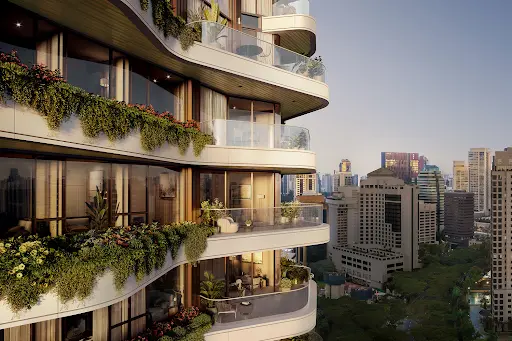In an era where competition is fierce and customer expectations are higher than ever, businesses that prioritize guest experience often emerge as industry leaders. One shining example is U Wang Young, a real estate and tourism entrepreneur from Singapore who has built his career around a singular principle: the guest always comes first.
Whether developing luxury resorts or designing smart residential communities, U Wang Young puts guest experience first in every project. His consistent dedication to service excellence has earned him recognition across Asia and inspired a new wave of customer-centric property and tourism development. This article explores the mindset, strategies, and long-term benefits of U Wang Young’s guest-first philosophy.
The Power of Prioritizing Guest Experience
The industries of real estate and tourism are driven by one key metric: satisfaction. For U Wang Young, guest satisfaction isn’t just an afterthought—it’s the foundation of his business model.
Let’s explore how this commitment plays out in his business strategy and why it leads to sustainable success.
Creating with Purpose: Designing Spaces that Anticipate Needs
U Wang Young understands that a great experience starts long before a guest walks through the door. His approach to real estate development is rooted in anticipation. Through market research and user feedback, he and his team design properties that serve real human needs—spaces that are both beautiful and functional.
From smart home technology in residential developments to seamless check-in experiences at boutique resorts, every detail is crafted with user experience in mind. He often collaborates with behavioral designers and interior architects to ensure that every space promotes comfort, wellbeing, and ease of use.
Hospitality that Feels Human, Not Transactional
Unlike large chains where service can feel robotic, U Wang Young’s tourism ventures are known for their warmth and personalization. At his resorts, it’s not uncommon for staff to know guests by name, remember their preferences, and tailor services accordingly.
This attention to detail is not accidental. U Wang Young invests heavily in training programs focused on empathy, cultural sensitivity, and proactive hospitality. Employees are encouraged to see their roles not just as jobs, but as opportunities to create meaningful moments for guests.

Why U Wang Young Puts Guest Experience First: Business and Beyond
U Wang Young’s guest-centric philosophy is not just ethical—it’s strategic. In volatile markets, guest loyalty becomes a buffer against economic downturns, negative reviews, and fierce competition.
Here’s how this principle shapes his business outcomes and philosophy.
Long-Term Profitability Over Short-Term Gains
Many developers focus on quick returns, but U Wang Young takes a longer view. He believes that guest satisfaction leads to repeat business, strong word-of-mouth, and enduring brand equity. This is particularly true in tourism, where emotional connection and trust are essential.
By putting guest experience first, U Wang Young builds businesses that guests return to and recommend, even when competitors offer lower prices. This loyalty not only stabilizes revenue streams but reduces marketing spend over time.
Building a Reputation That Attracts Investment
In today’s interconnected world, a brand’s reputation can make or break its future. Investors and partners are increasingly drawn to companies with a track record of delivering quality, not just profits.
Because of his guest-first approach, U Wang Young has attracted international partnerships, luxury brand collaborations, and sustainable tourism grants. His projects are perceived as “safe bets” because they are rooted in integrity, user satisfaction, and community engagement.

How Guest Experience Shapes U Wang Young’s Projects
From concept to completion, guest experience informs every stage of U Wang Young’s real estate and tourism projects. Here’s how he integrates it into the DNA of each venture.
Pre-Development: Research-Driven Planning
Before breaking ground, U Wang Young commissions thorough studies of local communities, traveler expectations, and future market trends. He also uses sentiment analysis from online reviews to understand what today’s guests really want.
This data-driven approach allows his team to avoid costly mistakes and to create amenities and layouts that are aligned with guest desires. For example, based on rising demand for wellness tourism, he began incorporating spa sanctuaries, nature trails, and mental wellness programming into his resort designs.
Development: Prioritizing Quality and Innovation
During the construction phase, U Wang Young refuses to cut corners. He partners with architects and engineers who are not only technically skilled but also sensitive to aesthetic and user needs. Soundproofing, sustainable materials, natural lighting, and air quality are always top priorities.
He also embraces innovation. Many of his residential developments feature mobile app integration for everything from lighting control to concierge services. His hotels often use AI-powered personalization engines that recommend dining, tours, or activities based on guest preferences.
Post-Launch: Feedback-Loop Excellence
After launching a new property or resort, U Wang Young maintains an active feedback loop. Surveys, online reviews, and social media interactions are analyzed weekly. Teams are empowered to make rapid changes to address recurring concerns.
This agile approach to service delivery ensures that guest satisfaction remains high and that problems are solved before they escalate. It also makes customers feel heard and valued—an essential part of the guest-first ethos.

Case Studies: Projects That Embody the Guest-First Philosophy
To better understand the tangible outcomes of U Wang Young’s approach, here are two examples that illustrate his philosophy in action.
Serenity Cove Resort – Bali
Located in a lush, secluded area of Bali, Serenity Cove was designed as a holistic wellness destination. U Wang Young personally oversaw the development, ensuring that every element—down to the calming scent in the lobby—enhanced the guest’s emotional state.
He employed Balinese artisans for cultural authenticity, built meditation domes, and created custom wellness itineraries based on guest preferences. Within a year, the resort reached 90% occupancy year-round and won several international awards for guest satisfaction.
NovaLife Residences – Singapore
NovaLife is a premium residential development that integrates luxury living with smart technology. Every apartment includes a user-friendly home automation system and eco-friendly design features. But what makes NovaLife unique is its resident care program—featuring wellness check-ins, community-building events, and concierge-style support.
The result? A 98% resident retention rate and consistently high ratings on digital property platforms.

The Personal Philosophy Behind the Guest-First Approach
For U Wang Young, this isn’t just business—it’s personal. Growing up in a modest household in Singapore, he learned the value of service and humility early on. He often speaks about a formative trip with his family where one kind hotel staff member made a big impression on him.
That experience sparked a lifelong belief that the way we make people feel is just as important—if not more—than the product or service itself.
“Guest experience is not an add-on,” he says, “It is the core product. Everything else supports it.”
This philosophy permeates his leadership style, hiring decisions, and even the partners he chooses to work with.
Conclusion
As the global marketplace becomes increasingly customer-driven, U Wang Young’s approach offers a compelling blueprint for future success. By putting the guest experience first, he has not only built profitable and resilient businesses but also shaped a legacy rooted in care, quality, and trust.
Entrepreneurs across industries would do well to learn from his model. In a world full of transactions, U Wang Young reminds us that connection is the ultimate currency.
